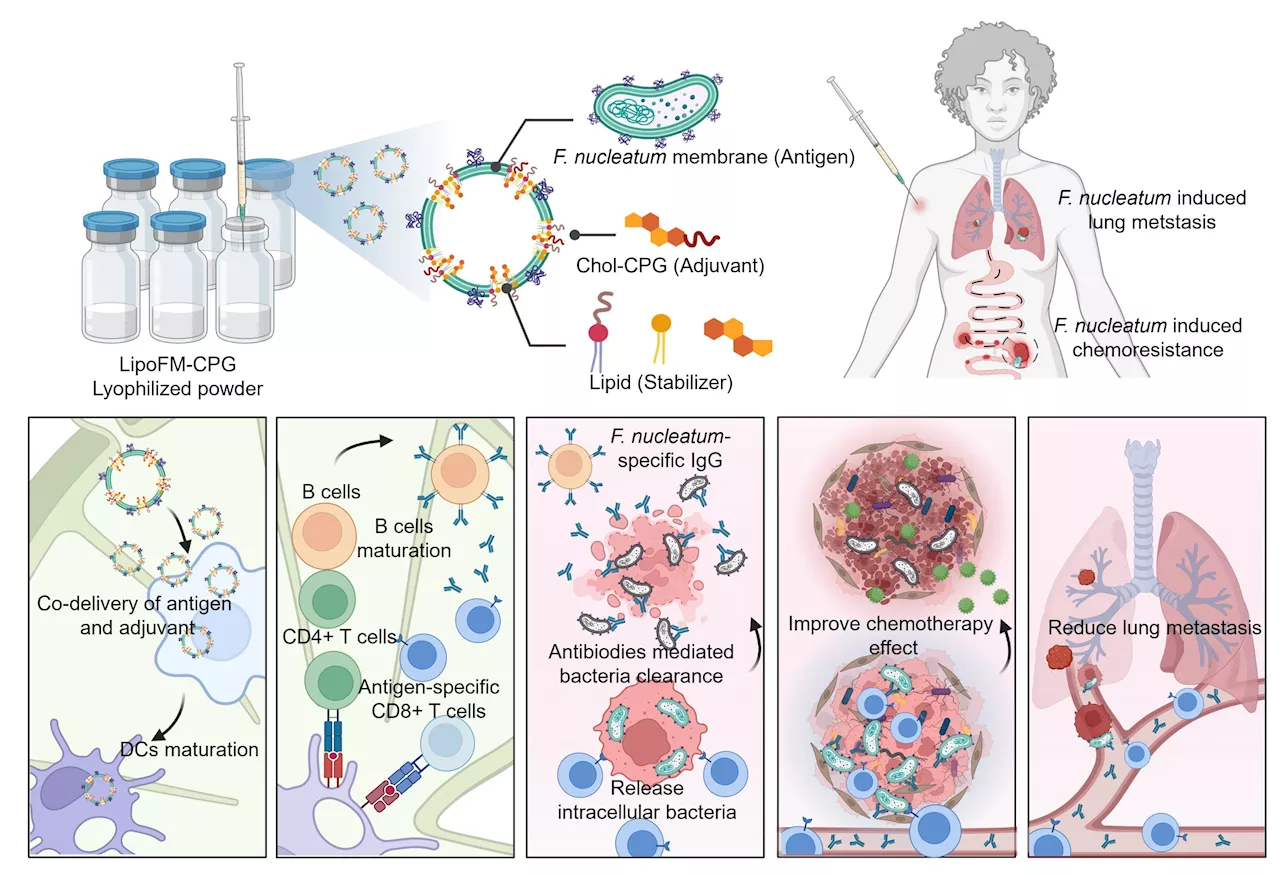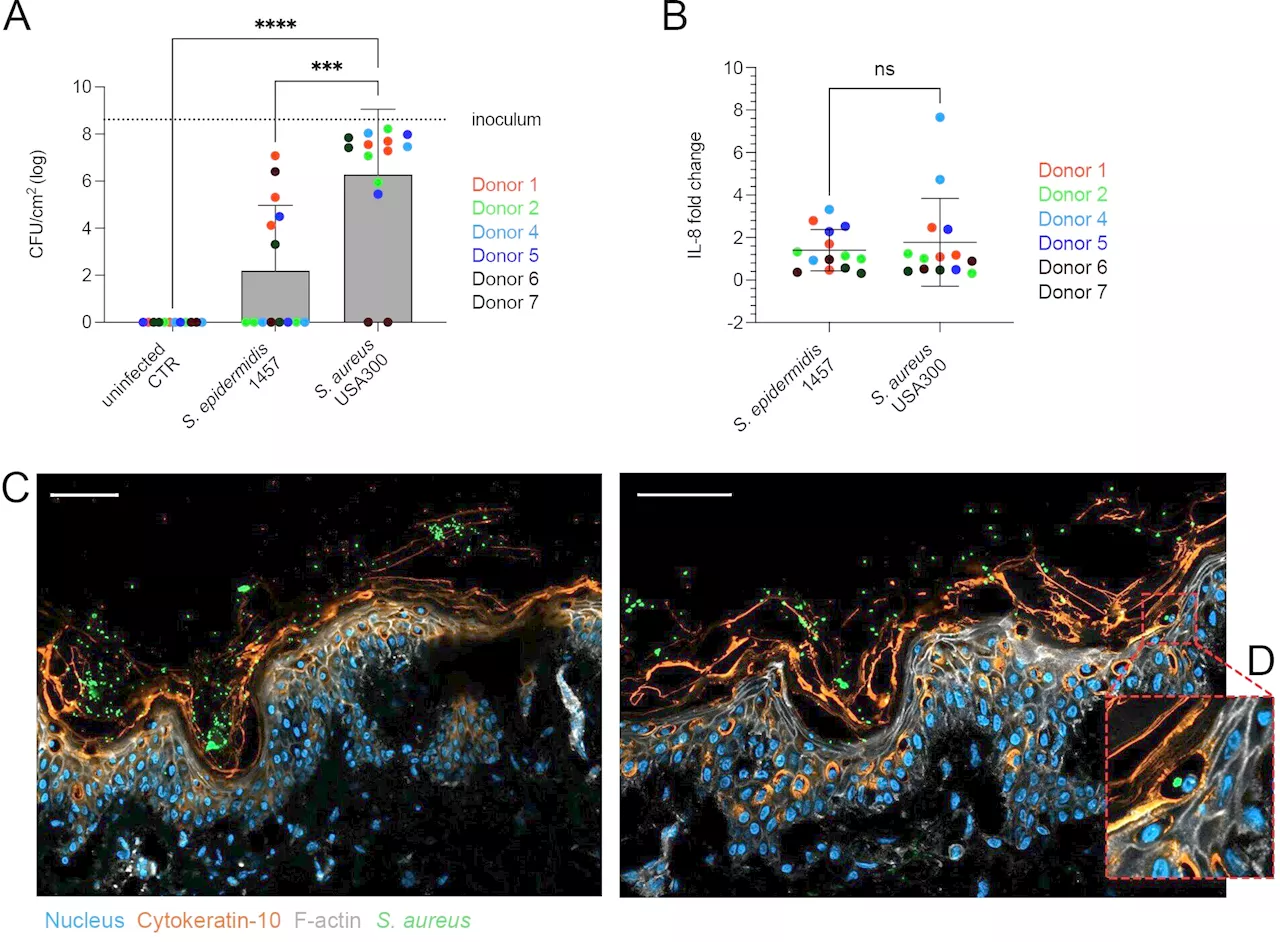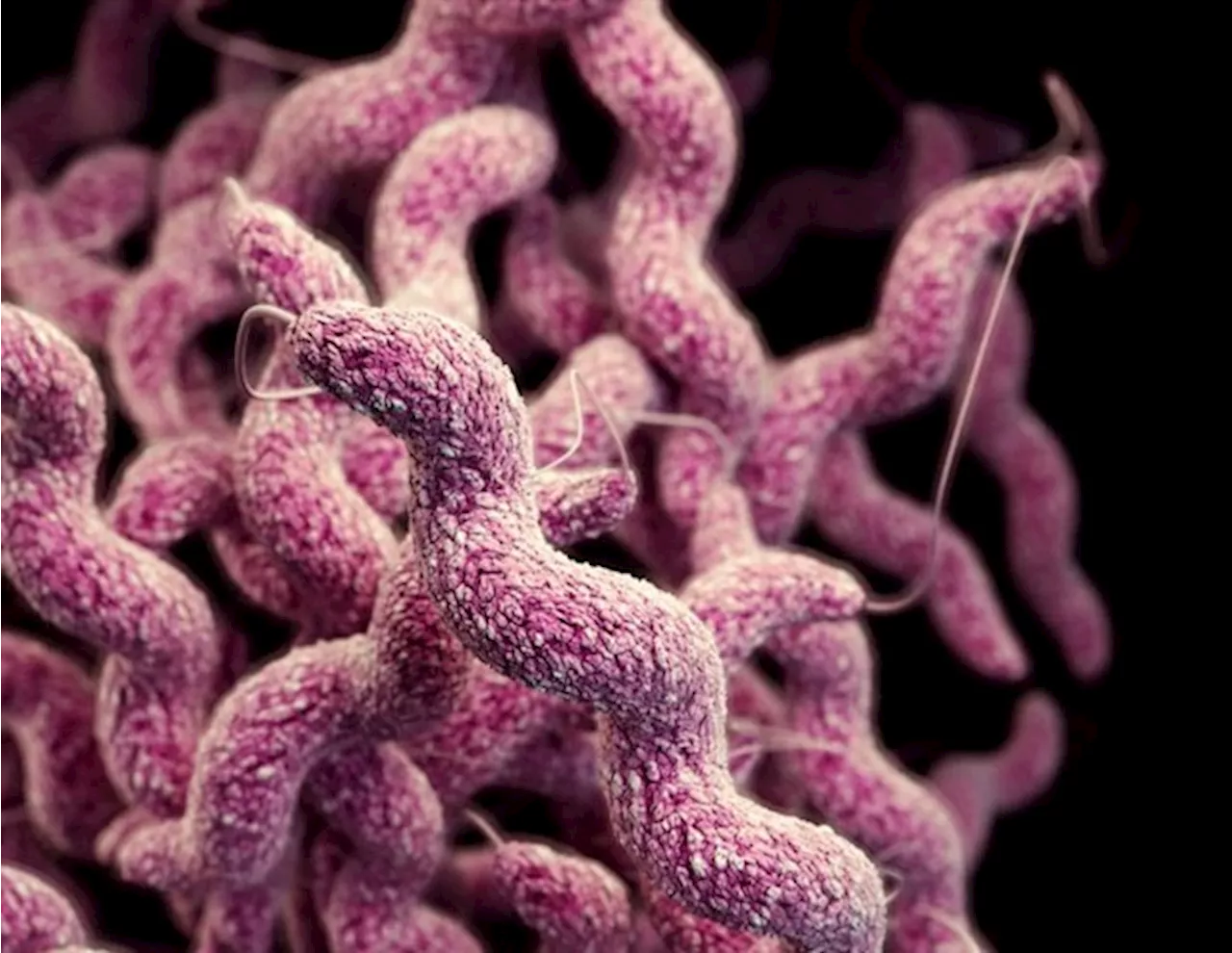Bacterial infections resulting in enteritis, sometimes extra-intestinal infections such as sepsis, continue to be a global health concern.
Osaka Metropolitan UniversitySep 25 2024 A leading cause of diarrheal and extra-intestinal infectious mortality among children under 5 and elderly persons is infection with Campylobacter bacteria, against which there is no effective vaccine or medication. An Osaka Metropolitan University-led team has recently uncovered what could be an important step toward preventing, diagnosing, and treating a species of Campylobacter bacteria.
Researchers including Professor Shinji Yamasaki and Associate Professor Noritoshi Hatanaka of the Graduate School of Veterinary Science and the Osaka International Research Center for Infectious Diseases at OMU focused on Campylobacter jejuni, the species of the bacteria that commonly causes gastroenteritis and sometimes extra-intestinal infections. Together they developed an antibody that can identify C. jejuni and inhibit the bacteria's growth.
This monoclonal antibody reacts to a multiprotein complex known as QcrC, the expression of which is essential for the pathogenicity of C. jejuni. The QcrC molecule was found in multiple C. jejuni strains, lending high reliability to the antibody's use in identifying the species. This molecule is also involved in energy production for C. jejuni, and the antibody acts to suppress this function, slowing the bacteria's growth and decreasing pathogenicity.
Our findings can lead to the development of preventive approaches so that Campylobacter infections do not become more severe, while also formulating a simple way to detect C. jejuni." "The development of a simple detection system," Professor Yamasaki explained, "will be useful for the rapid identification of contaminated food, which will be beneficial for the control of C. jejuni infections and food poisoning, along with vaccine development."Journal reference:Hosomi, K.
Campylobacter Vaccine Bacteria Children Food Global Health Medical Research Molecule Mortality Research Sepsis
United Kingdom Latest News, United Kingdom Headlines
Similar News:You can also read news stories similar to this one that we have collected from other news sources.
 Researchers identify bacterial strains to combat antibiotic-resistant gut infectionsAntibiotic-resistant bacterial infections often occur in patients with chronic inflammatory intestinal conditions, such as inflammatory bowel disease, and in patients who have taken antibiotics for a long time.
Researchers identify bacterial strains to combat antibiotic-resistant gut infectionsAntibiotic-resistant bacterial infections often occur in patients with chronic inflammatory intestinal conditions, such as inflammatory bowel disease, and in patients who have taken antibiotics for a long time.
Read more »
 Virginia Tech researchers uncover bacterial infection mechanismVirginia Tech researchers have learned how bacteria manipulate molecules to infect the host organism.
Virginia Tech researchers uncover bacterial infection mechanismVirginia Tech researchers have learned how bacteria manipulate molecules to infect the host organism.
Read more »
 Innovations in cancer treatment through targeted bacterial vaccinesF. nucleatum, an oral anaerobe, is frequently associated with colorectal cancer and is linked to increased cancer cell proliferation, metastasis, and poor treatment outcomes.
Innovations in cancer treatment through targeted bacterial vaccinesF. nucleatum, an oral anaerobe, is frequently associated with colorectal cancer and is linked to increased cancer cell proliferation, metastasis, and poor treatment outcomes.
Read more »
 New bacterial defense mechanism revealed as potential tool for genome editingScientists who have described in a new study the step-by-step details of a bacterial defense strategy see the mechanism as a promising platform for development of a new genome-editing method.
New bacterial defense mechanism revealed as potential tool for genome editingScientists who have described in a new study the step-by-step details of a bacterial defense strategy see the mechanism as a promising platform for development of a new genome-editing method.
Read more »
 How human skin differentiates bacterial friend from foeIn a study recently published in PLoS Pathogens, researchers at AIMES, The Center for the Advancement of Integrated Medical and Engineering Sciences at Karolinska Institutet, have identified one of the subtle—yet effective—pathways by which human skin differentiates commensals and pathogens.
How human skin differentiates bacterial friend from foeIn a study recently published in PLoS Pathogens, researchers at AIMES, The Center for the Advancement of Integrated Medical and Engineering Sciences at Karolinska Institutet, have identified one of the subtle—yet effective—pathways by which human skin differentiates commensals and pathogens.
Read more »
 What new college students should know about bacterial meningitisAs students head off to college, close quarters in new spaces could put them at risk for contagious illnesses, including bacterial meningitis. Dr. Tina Ardon, a Mayo Clinic family medicine physician, explains the common ways meningitis spreads and the best way to prevent an infection.
What new college students should know about bacterial meningitisAs students head off to college, close quarters in new spaces could put them at risk for contagious illnesses, including bacterial meningitis. Dr. Tina Ardon, a Mayo Clinic family medicine physician, explains the common ways meningitis spreads and the best way to prevent an infection.
Read more »
